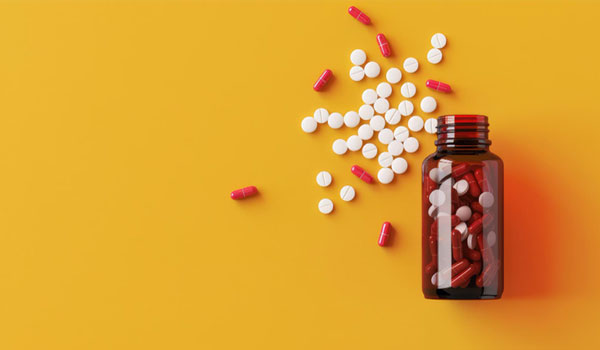Did you know that certain foods can interfere with the effectiveness of spironolactone? Understanding what to avoid while on this medication is crucial for your health. By steering clear of high-potassium foods like bananas, oranges, and tomatoes, you can prevent potential complications.
Cutting down on salt substitutes and potassium-rich supplements is essential to ensure spironolactone works optimally in your body. Stay informed about the dietary do’s and don’ts to make the most out of your treatment plan.
Understanding Spironolactone
Function
Spironolactone, a sparing diuretic, acts by blocking aldosterone’s effects, aiding in managing high blood pressure and edema. It plays a crucial role in regulating fluid balance and maintaining optimal potassium levels in the body.
Spironolactone’s mechanism of action involves inhibiting aldosterone receptors, reducing sodium reabsorption, and promoting potassium retention. This process helps in decreasing fluid accumulation and lowering blood pressure effectively. The drug’s ability to counter aldosterone’s actions is vital for patients with conditions like heart failure and liver cirrhosis.
Common Uses
Commonly prescribed for conditions like heart failure and liver cirrhosis, spironolactone also finds off-label applications in treating acne and hirsutism. Its effectiveness in addressing these dermatological concerns has made it a popular choice among healthcare providers.
The benefits of spironolactone extend beyond its primary uses. In addition to reducing blood pressure and fluid retention, it offers relief for individuals struggling with acne or excessive hair growth due to hormonal imbalances. This versatility highlights the drug’s significance in various medical fields.
Side Effects
While generally well-tolerated, spironolactone may lead to common side effects such as dizziness and increased urination frequency. Patients should be aware of these mild effects that often subside with continued use. Rare but severe side effects like hyperkalemia (high potassium levels) or allergic reactions can occur.
It is crucial for individuals taking spironolactone to promptly report any unusual symptoms or adverse reactions to their healthcare providers. Monitoring for signs of hyperkalemia, including muscle weakness or irregular heartbeat, is essential for ensuring patient safety.
Dietary Considerations
Importance
Maintaining a balanced diet is crucial when taking spironolactone to avoid adverse effects. Dietary choices play a significant role in managing potassium levels during this treatment. Following specific dietary guidelines can enhance the overall effectiveness of spironolactone therapy.
Spironolactone, a medication commonly used to treat conditions like high blood pressure and heart failure, can lead to potassium retention in the body. By avoiding foods high in potassium, individuals can prevent complications such as hyperkalemia, which can be life-threatening. Adhering to dietary restrictions is essential for ensuring the safe and successful use of spironolactone.
General Advice
To manage potassium intake while on spironolactone, individuals should focus on consuming low-potassium foods such as apples, berries, and rice while avoiding high-potassium options like bananas, oranges, and tomatoes. It is advisable to consult with a healthcare professional or a registered dietitian for personalized dietary recommendations tailored to individual needs.
Regular monitoring of potassium levels is vital during spironolactone treatment to detect any imbalances promptly. Healthcare providers may recommend periodic blood tests to assess potassium levels and adjust dietary choices accordingly. By staying vigilant about potassium intake and following medical advice closely, individuals can ensure the safe and effective use of spironolactone.
Foods High in Potassium
Bananas
Bananas are rich in potassium, which can pose a risk when consumed with spironolactone. Limit or avoid bananas to prevent high potassium levels. Opt for low-potassium fruits like apples or berries instead.
Leafy Greens
Leafy greens contain significant amounts of potassium, affecting potassium levels. Moderate the intake of leafy greens to prevent hyperkalemia. Consider consuming low-potassium options such as spinach or kale.
Potatoes
Potatoes are high in potassium, requiring moderation in consumption. Eating potatoes while on spironolactone may lead to elevated potassium levels. Employ cooking methods like boiling to reduce the potassium content.
Avocados
Avocados have elevated potassium levels, impacting overall balance. Limit avocado intake to avoid hyperkalemia while on spironolactone. Opt for alternative sources of healthy fats with lower potassium content.
Alcohol and Caffeine
Alcohol Risks
Alcohol can affect potassium levels, potentially leading to complications when taking spironolactone. This medication already impacts potassium balance, making alcohol consumption risky. Moderating or avoiding alcohol is crucial to prevent adverse interactions with spironolactone.
- Alcohol consumption increases the risk of hyperkalemia when on spironolactone.
- Excessive drinking can worsen side effects like dizziness and dehydration.
- Combining alcohol with spironolactone may reduce the drug’s effectiveness in treating conditions like high blood pressure.
Caffeine Effects
Caffeine’s impact on blood pressure and fluid balance can interfere with spironolactone therapy. Limiting caffeine intake is advisable to mitigate potential adverse effects while using this medication.
- Caffeine consumption may lead to increased blood pressure, counteracting spironolactone’s effects.
- Excessive caffeine intake could exacerbate dehydration, a common side effect of spironolactone.
- Cutting down on caffeine can help maintain the desired fluid balance required for effective treatment with spironolactone.
High-Sodium Foods
Processed Meats
Eating processed meats can significantly raise your sodium intake, leading to high blood pressure. To manage sodium levels while on spironolactone, it’s crucial to limit consumption of processed meats. Opt for healthier protein sources like lean poultry or legumes instead.
Fast Foods
Fast foods are notorious for their high sodium content, which is linked to an increased risk of hypertension. While on spironolactone, it’s advisable to either avoid or reduce fast food intake to regulate sodium levels. When dining out, choose grilled options over fried for a healthier choice.
Snacks
Selecting low-sodium snacks is essential to complement spironolactone therapy effectively. Opt for snacks like unsalted nuts, fresh fruits, or vegetable sticks to keep your sodium and potassium intake in check. Making homemade snacks allows you to control the ingredients and ensure they align with your dietary restrictions.
Licorice Root
Blood Pressure Impact
Spironolactone functions by reducing sodium and water retention, aiding in lowering blood pressure effectively. This medication works by blocking the action of aldosterone, a hormone that regulates salt balance in the body. By inhibiting aldosterone’s effects, spironolactone helps the kidneys excrete excess sodium and water, thus decreasing blood volume and pressure.
Dietary modifications play a crucial role in enhancing spironolactone’s blood pressure-lowering effects. Avoiding high-sodium foods is essential to prevent counteracting the medication’s benefits. Reducing salt intake can further support spironolactone’s mechanism of action, ensuring optimal control of hypertension.
Combining medication with lifestyle changes offers a holistic approach to managing hypertension. Alongside taking spironolactone, individuals should focus on adopting a heart-healthy diet rich in fruits, vegetables, and whole grains while limiting processed foods and sugary beverages. Regular exercise and maintaining a healthy weight are also key components of an effective hypertension management plan.
Supplements and Herbs
Herbal Supplements
Herbal supplements can interact with spironolactone, potentially leading to adverse effects on hormones. It is crucial to be cautious when using herbal supplements alongside this medication. Certain herbs may impact potassium levels, posing a risk when combined with spironolactone. To ensure safety, individuals should refrain from taking herbs like licorice root known for affecting potassium balance. Consulting a healthcare provider before incorporating herbal supplements into the regimen is advisable, especially when undergoing spironolactone therapy.
Vitamin Interactions
Vitamins can influence the effectiveness of spironolactone and its impact on hormonal balance. Patients must communicate all vitamin supplements they are consuming to their healthcare providers. This transparency helps in assessing potential interactions and adjusting vitamin intake accordingly. Tailoring vitamin consumption based on individual needs and medical advice is essential for optimizing the benefits of spironolactone therapy.
Summary
In managing your diet while taking spironolactone, it’s crucial to be mindful of potassium-rich foods, salt substitutes, alcohol, caffeine, high-sodium foods, licorice root, and certain supplements. Monitoring your intake and making informed choices can help you avoid potential interactions and side effects. By staying vigilant and educated about these dietary considerations, you can support the effectiveness of your medication and promote your overall well-being.
Take charge of your health by being proactive in understanding how your diet can impact your spironolactone treatment. Make informed decisions about what you eat and drink to ensure a smooth journey towards better health. Remember, a balanced diet is key to complementing your medication regimen effectively. Stay informed, stay healthy!



